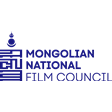A new wave of filmmaking talent is emerging from Mongolia, spurred by fresh funding. In Cannes, five projects were pitched to potential international partners, who learned of the advantages to shooting in the Asian territory. Mike Rosser reports.
Mongolia’s film industry is on the rise, with a momentum that began at Cannes in 2023.
Zoljargal Purevdash’s If Only I Could Hibernate was the first Mongolian film to be shown in Cannes’ official selection when it played in Un Certain Regard last year, going on to win a jury prize at Tokyo FilmEx and scoring box-office success both at home and internationally.
It was followed by Lkhagvadulam Purev-Ochir’s City Of Wind, the first feature from the Asian country to play Toronto and Venice.
Both features followed the introduction of a film law in January 2022 to promote production in Mongolia, leading to the establishment of the Mongolian National Film Council (MNFC) and Mongolian Film Fund.
International film productions can now receive up to 45% of filming costs for projects that are produced in Mongolian territory with a minimum spend of $500,000. Funding can be provided for both domestic and joint international film projects.
Most recently, MNFC allocated a cash rebate of around $800,000 for Japanese TV drama Vivant, which filmed in Mongolia last year and is available globally on Netflix.
“Mongolia wasn’t on the film map before our film, so I’m very proud of that,” says Frédéric Corvez, founder and president of Paris-based Urban Factory, who produced If Only I Could Hibernate with Mongolia’s Amygdala Films.
“In France, we reached almost €600,000 [$652,000], which is huge for this kind of film, not least because it’s more than the budget. In Mongolia, it recorded almost 100,000 admissions. People are now paying attention to the Mongolian film industry in a way they were not before.”
It has led to the emergence of a fresh wave of filmmakers looking to share their stories with a wider audience. Five projects were under the spotlight in Cannes, where Screen International hosted a pitching and matchmaking session.
Upcoming titles
Projects included sports drama The Underdogs: A Saga Of Basketball, directed by Nayantsogt and produced by Unurjargal Arslanbaatar, which follows a player-turned-coach who builds a basketball team from scratch, battling a corrupt regime in a bid to lead them to victory.
Writer/director Ankhbayar Nyamdavaa pitched comedy drama Jagaa And Driver alongside producer Nyamdulam Tsedevsuren. The project, which is in early development, follows a single mother
and CEO, who hires a new driver, heralding a fresh phase of her life.
The Tempest Is Crying Out Like A Gypsy’s Violin would mark the directing debut feature of Purevdorj Adiyasuren. Produced by Ariunzaya Ganaa, it follows a man who looks back on his first love as a teenager, when his infatuation led to him seeing visions of a horse-headed man.
Former Berlinale Talents alumnus Ikhbayar Urchuud pitched his feature debut project Of Dogs And Doves to potential partners. It follows a childless couple who gave up their baby for adoption and, several years later, make a trip to a tourist camp in the Gobi Desert. There, the wife becomes convinced the Asian child of a European couple is theirs and orders her husband to kidnap him.
Urchuud has previously made experimental shorts and co-founded the Mongolian Film Institute. He is also a director and programmer at Mongolia’s Golden Ger International Film Festival.
Rounding out the pitches was animation The Seeds Of Love by Bolorchimeg Ochirbat. It follows two young seeds looking to find their way in a larger world. The filmmaker is initially looking to realise the project as a short film but intends to develop a feature and TV series based on the concept.
Urban Factory’s Corvez added that he intended to reunite with Purevdash on her second feature, which will shoot in Mongolia. “Mongolia should make more films and support local producers and filmmakers,” he added. “Don’t lose this momentum.”


































No comments yet